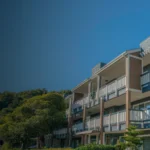If you’re part of an HOA in California, understanding SB 326 inspections is essential for legal compliance and resident safety. Passed in 2019, Senate Bill 326 requires regular safety inspections of elevated structures in condominium buildings—such as balconies, walkways, and decks.
This guide covers who needs an SB 326 inspection, what’s required, key deadlines, and what to do if your property doesn’t pass.
What Is SB 326?
SB 326 is a California law that requires HOAs to inspect certain Exterior Elevated Elements (EEEs) in multi-unit condo buildings. These are structures that:
- Are made of wood or wood-based materials
- Are six feet or more above ground
- Are designed for human use (e.g., balconies, walkways, decks, stairs, railings)
Who Needs an SB 326 Inspection?
You’re required to comply with SB 326 if your property:
- Is a condominium building with 3 or more units
- Is governed by a Homeowners Association (HOA)
- Includes wood-framed elevated structures intended for regular use
Key Inspection Requirements
- First inspection deadline: January 1, 2025
- Reinspection frequency: Every 9 years
- Must be performed by a licensed architect or structural engineer
- Inspection includes a written report with findings and photos
- Report must be kept on file and shared with residents upon request
What Happens During an SB 326 Inspection?
A licensed inspector will evaluate the condition of elevated wooden structures for:
- Water damage or dry rot
- Structural wear or deterioration
- Code compliance and safety hazards
You’ll receive a report with recommendations for any needed repairs.
What If We Don’t Pass the SB 326 Inspection?
If your building doesn’t pass:
- Repairs must be completed by a licensed contractor (not the inspector).
- Permits are required before beginning any structural work.
- A follow-up inspection is needed to confirm compliance.
- Keep all records for legal and resale purposes.
💡 Need help? We can refer you to trusted contractors for fast, compliant repairs.
What Is Exempt from SB 326?
You are exempt from SB 326 if:
- The structure is less than 6 feet off the ground
- It’s not made of wood or wood-based materials
- It’s not designed for human use
- You manage a single-family home or apartment building (those fall under SB 721)
SB 326 vs. SB 721: What’s the Difference?
| Law | Applies To | Overseen By | Frequency | First Deadline |
| SB 326 | Condo buildings (3+ units, HOAs) | HOA Board | Every 9 years | Jan 1, 2025 |
| SB 721 | Apartment buildings (3+ units) | Property Owner | Every 6 years | Jan 1, 2025 |
Penalties for SB 326 Non-Compliance
Missing the SB 326 inspection deadline can lead to:
- Fines of $100–$500 per day
- Lawsuits from homeowners or injured parties
- Enforcement actions by local agencies
- Insurance issues, including denied claims or lost coverage
Final Thoughts
SB 326 is more than just a legal requirement—it’s a way to protect your residents, your board, and your property. By completing your inspection before the deadline and following the proper steps, your HOA can stay compliant and avoid costly issues down the line.
✅ Schedule Your SB 326 Inspection Today
We provide licensed SB 326 inspections across Northern California, with detailed reports and clear next steps.
📞 Contact us today to get a free quote and meet the 2025 deadline with confidence.
